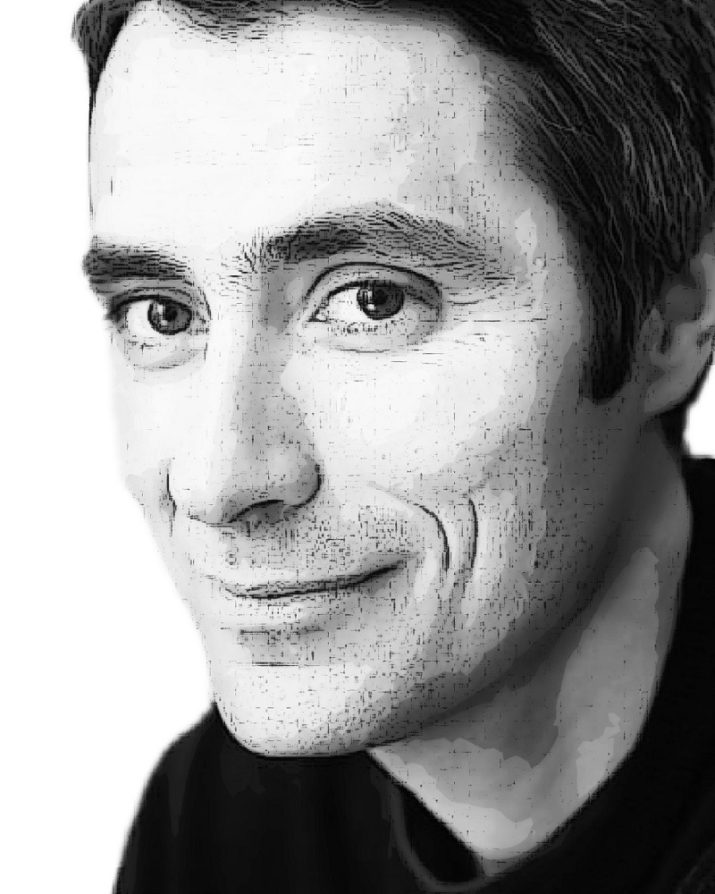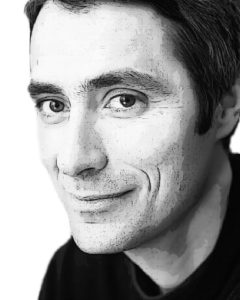
On Populism, Liberalism, and the Future of the Left: An Interview with Raphael Liogier

Sociologist and philosopher, Raphael Liogier has published a series of books, delving into questions of the sacred and the religious within contemporary societies, and on more general questions of the future of human identities in a globalized and connected world.n. The first two volumes are entitled Le mythe de l’islamisation, Essai sur une obsession collective (2012)[1] and Ce populisme qui vient: Conversations pour demain (2013).[2] In these volumes, Liogier analyzes the current rise of populism, Islamophobia, and extremism in most developed countries, and proposes a new conceptual framework to understand it. The third volume is called La guerre des civilisations n’aura pas lieu: coexistence et violence au XXIeme siècle (2016.)[3] Here, Liogier opposes the dominant idea, popularized by Samuel Huntington in his book Clash of Civilizations, and the Remaking of World Order (1996)[4] that the contemporary rise of racism is not the consequence of a clash between incompatible religions and civilizations—as Fukuyama argued in his book The End of History and the Last Man (1992),[5] but the product of a global culture (with the multiplication of “deterritorialized spaces of desire”) that is working at undoing the traditional making of identity (by blurring the notion of frontiers, and the notion of the other). His last and most recent book, which deals with the social and economic consequences of the changes implied by globalization and new technologies, is called Sans emploi. Condition de l’homme postindustriel (2016).[6] In this volume, Liogier is imagining—very much like Herbert Marcuse or Georges Bataille in their respective times—what could be a world where the value attributed to labor would be replaced by a “basic universal income” that would enable each individual to become creative (and thus productive) in agreement with his or her “desire to be.”
—Frederic Baitinger for EuropeNow
EuropeNow What does populism mean to you?
Raphael Liogier The question of populism is essential, even though the term is a bit confusing. To be a populist does not mean to be close to the people. It is neither to be a demagogue, since demagogy (understood as the art of seducing and convincing) is an essential part of any form of politics. To be a populist, according to me, is to speak in the name of people, to speak for them, which is to say, on their behalf.
EuropeNow Who is a populist in France, and why?
Raphael Liogier In France, the closest incarnation of the pure ideal type of a populist is Marine Le Pen. Contrary to her father, who was not a populist but an extreme-right elitist, Marine Le Pen is the one who brought to her father’s party, the FN (the National Front), a left-wing twist that enabled her to start speaking in the name of the people. Such a twist, of course, is what makes her an even more dangerous politician than her father. Indeed, while a lot of people are saying that the FN is less dangerous than before because of Marine Le Pen’s move away from her father’s radicalism, I would argue the exact opposite. I would say that it is precisely because Marine Le Pen has integrated into her program some left-wing measures, that she turned herself into a populist. And this turn is what makes her much more dangerous than her father. Because when one is labeled “extreme-right,” one can gain votes from the margins, and the margins, depending on the historical period, can be large, but those margins are never as large as what a populist is aiming at, namely, to represent all the “people.”
EuropeNow What are the common features between the current populism, and the one that developed in Europe during the twenties and thirties?
Raphael Liogier Just like Hitler’s movement in the twenties and thirties, Marine Le Pen’s populism could be qualified as a “national socialism” (while her father’s movement was a national liberalism), that is to say, as a movement that is neither left nor right. She belongs to the right when it comes to the question of identity, frontiers, etc. But she belongs to the left when it comes to social protectionism and health care. Of course, this left component is grounded itself in the idea that there is a “real French population” that is beyond left and right, and that is threatened in its identity and that needs to be protected. Conversely, there is a “false French population” that is attacking from the inside the French identity, and that is putting at risk the future of France. And it is this idealized and completely constructed idea of a “the real people,” that enables populist to transcend political parties, and to claim to be neither right nor left. Populism, in this sense, is always the product of a “narcissistic wound” that is being re-enforced by an economical crisis. In other words, populism is never, as some people argue, the sole product of an economical crisis. It is always, first and foremost, a problem related to the collective identity, and its growing incapacity to maintain the coherence of the narcissistic narrative of its own identity. Populism appears when a nation can no longer narrate its own identity the way it was used to (which is precisely what Trump’s slogan “Make America great again!” shows). It indicates a form of frustration, resentment, and humiliation on the side of the people that feel betrayed. And it is this specific frustration that triggers the need to find scapegoats, or at least some institutions or people that could be hold responsible for this loss of power.
EuropeNow If the emergence of populism, as well as extremism, implies a form of mythological problem at the level of identity, what is the identity problem that France is facing right now that has produced such a rise of populism? And is this crisis related to the broader crisis of the European identity?
Raphael Liogier While the populism from the twenties and thirties was able to ground its claims about “the real people” on a very “solid” racial ideology—itself grounded on some kind of “science” —our modern form of populism is “liquid,” which is to say, grounded on a very volatile hatred of certain cultures. It is the notion of culture that has replaced, nowadays, the notion of race. It is the culture of certain people that has come to represent what race represented in the twenties. But this hatred of certain cultures, far from being stable, is on the contrary very versatile. It keeps changing. When it comes to the “marriage pour tous” (Gay Marriage), for example, traditionalist Catholics can protest in the street alongside traditionalist Muslims. But the exact same Catholics could be protesting against those same Muslims on the question of the veil. This is why our contemporary populism is so versatile. The object of its hatred can vary according to places and time. It is a populism that hides its violence under the idea that certain cultures—like the one of Islam—are incompatible with the French culture. It is also a populism that complements the idea that the vast majority of people are held in hostage by minorities that political institutions are protecting at the expense of the “betrayed” majority. The Muslims, under such form of populism, have become the perfect new scapegoat. Muslims, indeed, are the historical enemies of the Catholic Church (and thus of the traditional French right), and they are, since the process of decolonization, the enemies of the inside—the ones that are putting at risk the French universalist and enlightened identity. Muslims are supposed to be, from a left-wing perspective, the enemies of democracy, freedom of expression, feminism, same sex marriage, etc. – even though many can demonstrate that this is not true.
EuropeNow To exemplify this collective obsession around “the Muslims,” could you explain to us what Marine Le Pen managed to make of the notion of “laicity” (secularism), which is a deeply “relativist”[7] notion, one of the main theme of her “differentialist”[8] campaign?
Raphael Liogier It is true that the notion of laicity is, at first, deeply “relativist.” It is the product of a liberal and universalist stand on culture. It has been made to protect the freedom of everyone. The first article of the 1905 law on laicity is the guarantee of the freedom of religion. As such, the state has the duty to guarantee the freedom of religion of everyone, and to help for the construction of cult places if it is required for certain people that are too poor. In the case of recent immigration, the state has the duty to make sure that any minority can practice freely its own religion. It is a question of fraternity. And this fraternity is important because it is what guarantees the possibility of equality, and through equality the possibility of freedom. Demonstrating the exact opposite of such an idea, Marine Le Pen made of laicity an instrument at the service of a hygienist politics, a politics that targets unwelcome identities, which is to say, identities that are threatening the integrity of the French one. In a way, one could say that Marine Le Pen emptied out the notion of laicity of all of its content in order to make of it a part of the French exclusive heritage. A kind of relic.[9]
EuropeNow This new interpretation of laicity, as a laicity of exception, is also very much aligned with another important feature of populism that you have isolated: the hatred of the intellectual. For the populist, reason and complex analysis are generally seen as what is being used by intellectuals to betray the “real people.” But if it is so, how do you understand the victory of Emmanuel Macron during the last presidential elections in France? What pushed French people to choose an intellectual and a liberal for their president, and not a populist such as Marine Le Pen?
Raphael Liogier The populist hatred of the figure of the intellectual is linked to what I call the populist scene. This scene is composed of four protagonists. The first one is “the real people.” The second one is the “false people.” The third one is the ally of the “false people,” the one who is fighting for the rights of minorities within the system. It is, for example, the character of the intellectual. And opposed to it is the fourth protagonist that I call the tragic hero. The tragic hero is the ally of the “real people,” like Marine Le Pen or Donald Trump. The populist scene is thus a scene where two opposite visions of existence are opposed. On the one hand, we have the side of the “real people” and their tragic hero. It is a side where something has been lost—the real French identity—and where life has become a desperate fight for a lost cause. And on the other, we have the side of the “false people” and the traitors of the system—the side of those who have chosen the corruption of neo-culture, that have chosen to abandon the authentic French culture, to allow it to be lost.
Within such “populist scene,” Emmanuel Macron and his movement En marche! has been the only truly liberal answer. Of course, prior to En marche!, there were people in the Socialist party, or in the Republican party, that were opposed to the populist trend, but they were divided and thus inoperative. Before the constitution of En marche!, most of those liberal people were still opposed to one another in the name of older partisan divisions, while they were sharing an essential part—their opposition to populism. Emmanuel Macron has been the one who enabled them to start working together. Before him, liberals from the right were afraid to be called progressive, because it would have associated them with the left, and the liberals from the left were afraid to be called liberal, because it would have associated them with the right. And it is thanks to Emmanuel Macron and his movement En Marche! that it has become possible to be fully a liberal in France, that is to say, to be progressive and liberal. This is the real genius of Macron: to have made possible this alliance between the progressive force of the left, and the liberal force of the right. And it is thanks to this alliance that Macron has been able to impose his positive reading on the current situation. Reversing every source of anxiety of the populists, Macron and his movement has been able to substitute for the tragic emotion that was dominating the beginning of the election, a sense of hope. He managed to refocus the debate on what was really at stake—our freedom of speech, our freedom of expression, in other words, all the values of liberalism.
I could perhaps now mention three other external reasons that have helped the election of Macron. The first one is, of course, the scandal that happened to François Fillon, who otherwise would have been elected on the program that was half populist, half liberal. And there are also two external reasons, Trump’s election, and Brexit. Contrary to what one might be tempted to think, Brexit did not reinforce populism in France but played against it. Brexit was the actual realization of one of the populist dreams in the rest of Europe. But the actualization of the dream through Brexit actually showed to the rest of Europe how bad and ineffective this dream was. Europe, which was taken as one of the scapegoats of the populist movement turned out to be not so evil. Even more so, the very idea of Europe—which has been a completely negative idea since the past ten or twenty years—became positive again thanks to Brexit (since England is facing economic difficulties, and impulses of independence from Ireland and Scotland). Melenchon, for example, or Marine Le Pen, who were both against Europe at the beginning of their campaign, sensed that they had to change their position on Europe if they wanted to win. Europe became, once again, the source of a positive narrative for the French people. Likewise, Trump’s election had a negative impact on French populism. His election was felt as a traumatic event that has destabilized the very idea that a French populist had of America. Instead of seeing in America the symbol of capitalism, it became a potential model without truly being one. The French populist could no longer be anti-American the way they used to be. It also showed to people how terrible and disastrous it is to have a populist elected at the head of a powerful country like the United States. It scared them. It showed them how inefficient and dangerous it is.
EuropeNow To end this interview, could you summarize, for us, the solutions that you have been developing in your last book Sans emploi to all the political and economical problems that we have been discussing so far?
Raphael Liogier Today, we are witnessing the paradoxical situation where our modern economies have never produced so many goods, while the system of redistribution of these goods is still mapped onto a former stage of scarcity. This is why work is still being protected as a value in itself. To me, the problem is to find the proper way to redistribute the wealth while maintaining the motivation of each individual, i.e. while maintaining his or her “desire to be” as high as possible. The idea is to maintain a form of competition, but only at the level of the “desire to be,” and not at the level of the two prior levels of desire[10] (at the level of “the desire to survive,” and the level of the “desire to live”). What is important is to create the right conditions of this “ultimate” competition at the level of the “desire to be.” Thus, against the neo-liberals, who pretend to be for the competition at the level of work, while maintaining all sorts of inherited privilege that make such competition a fraud, I want, as a liberal, to create a real condition of equality at the two prior levels in order to have a real and fair competition at the level of “desire to be.” This is why I am advocating for the creation of a guaranteed income” that would create the proper condition for such a competition. We have to start imagining a world where everyone could be creative. Such a society would not be a society of laziness (for laziness is the expression of depression), but a society of creative idleness where what is being taxed is mostly the capital, that is to say, the machines, as well as the consumption. But not work per se. Likewise, it is the whole idea of private property and accumulation of wealth that needs to change. Instead of this outdated vision of private property, we should start to think about new forms of participative property where each one could integrate in his or her narrative the objects that they need to have and use at a certain moment. What needs to be changed is thus not the idea of property, but the fiction of an exclusive property. It is at that level that we could reverse the populist equation.
Raphaël Liogier is a French sociologist and a philosopher. He is the director of the Observatoire du religieux and a professor at the Institut d’études politiques d’Aix-en-Provence and the Institut de management public et de la gouvernance territoriale. He also teaches in Paris at the Collège international de philosophie.
Frederic Baitinger is a Ph.D student in the department of French at The Graduate Center, CUNY. He is currently finishing his dissertation on the late teaching of Lacan. He is also an adjunct professor at Hunter College, and a member of The Lacanian Compass. He has published articles and translations in the field of psychoanalysis, philosophy and literature.
Photo: Raphaël Liogier, Private
References:
[1] Raphaël Liogier, Le mythe de l’islamisation. Essai sur une obsession collective, Paris, Seuil, 2012 (revised new edition 2016)
[2] Raphael Liogier, Ce populisme qui vient, Conversations pour demain. Paris: Edition Textuel, 2013.
[3] Raphael Liogier, La guerre des civilisations n’aura pas lieu : coexistence et violence au XXIème siècle. Paris: Edition du CNRS, 2016.
[4] Samuel Huntington, The Clash of civilizations, and the Remaking of World Order. London: The Free Press, 2002.
[5] Francis Fukuyama, The end of History and the Last Man. New York, Penguin Books, 1992.
[6] Raphael Liogier, Sans emploi : En finir avec le travail pour en finir avec le chômage. Paris: Les liens qui libèrent Edition, 2016.
[7] To be a “relativist” is to accept differences in the name of what one shares with others. In other words, for a relativist, as long as one respects in others their humanity, which is to say their physical and moral integrity, then any cultural differences is acceptable.
[8] To be a “differentialist” is to think that there is an unbridgeable gap between cultures. The thesis defended by Huntington in The Clash of Civilizations is grounded on such an idea. Civilizations represent different cultures that are not comparable, since they did not go through the same stages of development, and that they don’t share the same history. It is a form of zoology of culture that appreciates the other only if he/she remains in their own environment.
[9] It is important to underline, here, that it is François Barouin (the right-wing politician who is currently leading the legislative campaign for Les Républicains) who is the author of the 2003 official reporting called the “new laicity”. This reporting argues that laicity is not the pure product of the universal declaration of human rights, but can be opposed to it sometimes. In other words, the reporting on the “new laicity” has opened up a differentialist interpretation of what was supposed to guarantee a relativist position. Laicity became, since then in France, an instrument to fight against communitarianism, that is to say, an instrument to fight any form of cultures or minorities that could be a threat to the integrity of the French identity.
[10] There exist three kinds of goods and services according to Liogier. There are the goods and services of the first level, that are required to survive. Those goods and services were the basis of what was valued during the Paleolithic. Beyond those, there are the goods and services of the second level, which are related to what Liogier calls a “desire to live”. It is, in a sense, what could be called objective luxury, which is to say, a form a luxury that one can do without, but that do increase objectively the amount of free time. This second level is related to the development of large civilizations. And then there is the “desire to be”, which was there from the start, but that was hardly allowed to be expressed to its full extent in the past.




